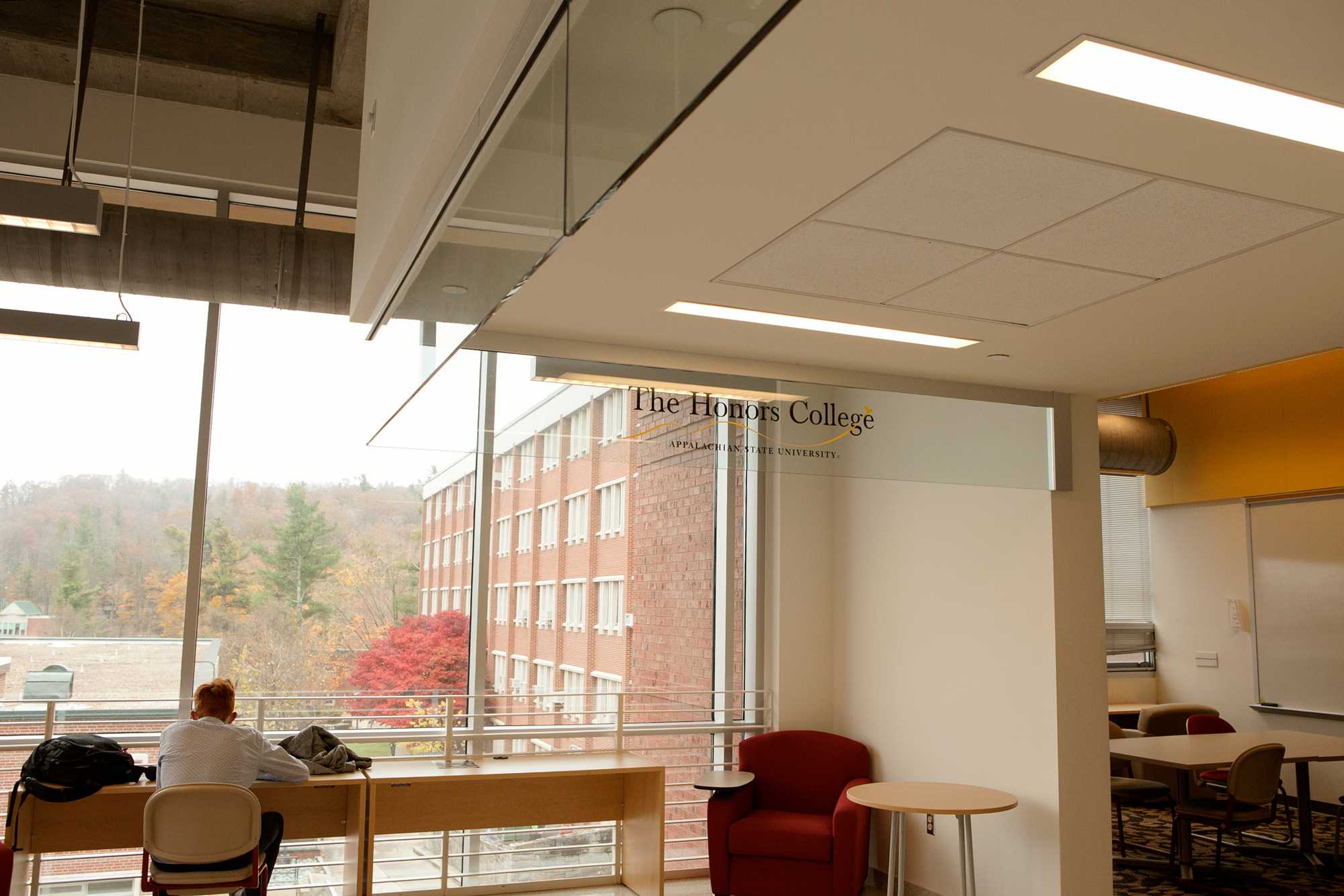Dean of Honors College Provides a non gender-specific way to speak about college students
A student studies in the quiet hallway of Appalachian Hall, home of the Honors College. The Honors College is now referring to freshmen as “freshmoores.”
November 24, 2018
If you listen closely around campus, you may hear more students using the word “freshmore” to describe those traditionally known as freshmen. Jefford Vahlbusch, dean of The Honors College, introduced the term when he came to App State two years ago.
“Freshmore” is a more inclusive, non gender-specific way of referring to first-year students, Vahlbusch said.
“I got tired of listening to female students say freshman,” Vahlbusch said. “It just didn’t seem to be right that we didn’t have a non-gender specific way of talking about college students.”
Vahlbusch began using the term at a previous institution, University of Wisconsin-Eau Claire, in searching for what he described as “a non-sexist way to talk about freshmen.”
“I just started using (freshmore) and encouraging students, prospective students and parents to use it, and it kind of caught on,” Vahlbusch said.
Although it hasn’t yet become a universal term, the students and faculty within The Honors College have embraced it within the past two years, Vahlbusch said.
“I think that certainly the freshmore class this year is using it more often,” Vahlbusch said.
Marlen Cardenas, a “freshmore” Communication, Journalism major who is a student in The Honors College, also appreciates the inclusive goal behind the use of the word.
“I don’t mind being called a freshman, but it’s nice that they’re making an effort to make sure everyone feels included,” Cardenas said.
Vahlbusch explained that people are generally accepting of “freshmore” and are quick to understand its meaning.
“Clearly, it’s something that people have found fun and useful at the same time,” Vahlbusch said.
Vahlbusch also said why he feels it is important to use a word like “freshmore,” explaining that having the term shows awareness in regards to college students.
“We have women and men as college students, and I think having a non-gender specific way of talking about them, of addressing them, just shows that we’re aware of the power of language,” Vahlbusch said.
Despite the term not yet being widely used all over campus, Vahlbusch said he thinks if people begin to simply use the word more often, it could catch on.
“It would be interesting to try it on an institutional scale, but I don’t know that mandating it is necessarily the way to go,” Vahlbusch said. “I like change that comes from below, rather than change that comes from above.”
Others seem to be aware of its relevance and impact, Vahlbusch said, explaining that he was recently in a high-level administrative meeting in which someone used the word freshmen, and then apologized for not having a better word to use.
“I think that we are really all rewarded when we strive for inclusive language and inclusive practice,” Vahlbusch said.
Vahlbusch also made clear there is a definite need for a term like “freshmore.”
“I think for this particular word there’s a real place for freshmore or a word like it as we become more conscious of being inclusive. I think it’s a good thing to think about,” Vahlbusch said.
Story by Erin O’Neill











